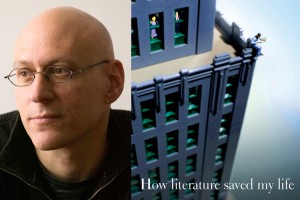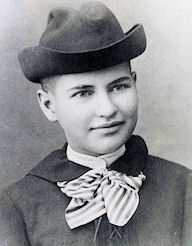David Shields in Conversation: Notes from the Highly Self-conscious Rat Lab
Discussed:
-David Shields = highly self-conscious lab rat; David Shields = Canada
-Will the internet ever save anyone’s life?
-Bret Easton Ellis’s twitter feed
Catherine Lacey: I read How Literature Saved My Life during a two-week period when my only exposure to the internet was responding to a few emails on my phone. I read almost a book a day. It felt like it was saving my life. Since then my disdain/distrust of the internet seems to grow every day and your book made me remember, in a way, why. When I got to the list of fifty-five works you swear by, I realized that of all the works I find the most admirable, very few of them came to be online. And yet I have spent a lot of time reading things online, disproportionate to the enjoyment or worth I’ve found here. In light of this book and Reality Hunger, I’m curious about how you use the internet.
David Shields: I use the internet as a tool to figure out where the war is being waged that day on our individual and collective minds.
Catherine: Specifically, what websites and what kind of content? News? I’m assuming you still read books, too?
David: I read books almost entirely offline. Stuff online: I just follow what links come in to me and I explore them. There are no websites I return to in any predictable way.
Catherine: When I read Reality Hunger in 2009 I think I was feeling more positive about the possibilities and influence that the internet was having on literature, but now I’m not so sure. Am I just turning into a crank? I am starting to get the feeling that the brevity and quick turnaround time of internet publishing is not our friend. Do you think it is our friend?
David: Hmm. Internet publishing. Not sure I even know what that is. You mean the way you can write an article and it will be up on the web within minutes?
Catherine: I mean exactly that. The immediacy of online magazines.
David: Not hugely crucial to me—this aspect. I’m not running a newspaper. I’m trying to write books that will alter how people think in 20 years. Seems to me that we’re not quite there yet with internet publishing. I’m virtually certain that within a generation—if not much sooner—publishing as we know it will be no longer, and my sense is that any decentralization of publishing, any removal of the middleman, is good. It’s more chaos-making, but it’s largely for the good. I gather you were/are writing a book about religion, and you may have religious impulses that I don’t have. I have zero drive toward anything beyond this; there is nothing beyond the world of humans as nature and animals—and so if this is the particular chaos that we occupy now, it’s no more and no less “meaningful” than the chaos occupied by our ancient amoeba-ancestors. READ MORE >
Dressing Up Maggie Nelson
 I first became of aware of Maggie Nelson when I overheard two feminist girls debating whether or not what “she was doing” was ethical. I did not know what “she was doing,” nor did I care. I was forbidden to read her. She was a girl, and for quite a bit it was against the law for me to read girl poets besides, of course, Sylvia. The ban against girls began when a teacher (another feminist, and certainly not the catty, commendable kind) assigned us the Sharon Olds’s poem “The Language of the Brag.” The poem perpetuates the base boast: “I have done what you wanted to do, Walt Whitman, / Allen Ginsberg, I have done this thing.” Oh bother! A demographic whose primary goal is to be like two hairy free-verse guzzling perverts will elicit neither esteem nor heed from me. But then another teacher (a boy one) suggested I read Ariana Reines. Ariana isn’t an intolerably gregarious gay and she isn’t a beatnik-hippie sodomite. Ariana is a monster. In one poem in The Cow, she munches her own poop, sips her throw up, and goes down on herself. She is “self-contained”: disciplined and exacting. She is a sword-sharp: the antithesis of the free verse commoners who are as loose and watery as Barack H. Obama’s negotiating skills.
I first became of aware of Maggie Nelson when I overheard two feminist girls debating whether or not what “she was doing” was ethical. I did not know what “she was doing,” nor did I care. I was forbidden to read her. She was a girl, and for quite a bit it was against the law for me to read girl poets besides, of course, Sylvia. The ban against girls began when a teacher (another feminist, and certainly not the catty, commendable kind) assigned us the Sharon Olds’s poem “The Language of the Brag.” The poem perpetuates the base boast: “I have done what you wanted to do, Walt Whitman, / Allen Ginsberg, I have done this thing.” Oh bother! A demographic whose primary goal is to be like two hairy free-verse guzzling perverts will elicit neither esteem nor heed from me. But then another teacher (a boy one) suggested I read Ariana Reines. Ariana isn’t an intolerably gregarious gay and she isn’t a beatnik-hippie sodomite. Ariana is a monster. In one poem in The Cow, she munches her own poop, sips her throw up, and goes down on herself. She is “self-contained”: disciplined and exacting. She is a sword-sharp: the antithesis of the free verse commoners who are as loose and watery as Barack H. Obama’s negotiating skills.
Obviously after I discovered Ariana and the rest of Rebecca Wolff’s spitfire songstresses my ban against girl poets had to be banned. This meant I could finally read Maggie, which turned out to be marvelous. Maggie is obsessed with ghastliness, terror, and the dead. She devotes “years of compulsion, confusion, and damage” writing about her Aunt Jane, a girl who was viciously murdered while returning home from college. Moreover, she’s compelled by one of the most blessed, articulate, and mischievous girls to ever be forced to live on earth… Anne Frank! “But who can guess / what Anne would have said / about the last place she went,” Maggie tantalizes. Indeed, Maggie has outstanding tastes and curiosities, so I will provide her with three outfits so that she feels fabulous in her wonderfully horrific world.
Exodus; an interview with Lars Iyer
 What Lars Iyer has managed to do in his trilogy, spanning from Spurious, through Dogma, and now to Exodus—the final book soon to be released from Melville House—feels rather unprecedented. At once these are individually these brilliant picaresque novels ambling through Europe and America; as well as idealistic conversational pieces between his protagonist, Lars, and his counterpart W. Perhaps my favorite aspect of Iyer’s work is the brilliant ways in which he’s able to meld the artists and thinkers of yore, with those today—weaving long conversations about Kafka seamlessly with those about filmmaker Bela Tarr. I’ve loved these novels, and watching them form an official trilogy has me ready to start right over reading them, or anxiously await Iyer’s next effort. I had the opportunity to ask Lars Iyer several questions upon the release of Exodus. We discussed many things, from Nietzsche to Pasolini, and Iyer was prolific in his responses.
What Lars Iyer has managed to do in his trilogy, spanning from Spurious, through Dogma, and now to Exodus—the final book soon to be released from Melville House—feels rather unprecedented. At once these are individually these brilliant picaresque novels ambling through Europe and America; as well as idealistic conversational pieces between his protagonist, Lars, and his counterpart W. Perhaps my favorite aspect of Iyer’s work is the brilliant ways in which he’s able to meld the artists and thinkers of yore, with those today—weaving long conversations about Kafka seamlessly with those about filmmaker Bela Tarr. I’ve loved these novels, and watching them form an official trilogy has me ready to start right over reading them, or anxiously await Iyer’s next effort. I had the opportunity to ask Lars Iyer several questions upon the release of Exodus. We discussed many things, from Nietzsche to Pasolini, and Iyer was prolific in his responses.
***
GM: When it was decided that this interview would happen, I went to check your blog for any updates and found the first entry to be an interview excerpt of Pasolini. Your work draws comparisons from fields far outside the immediate realm of literature—speaking here both of philosophers and filmmakers, comedians and old scribes—so I was wondering about the other side of things; as a writer, how do you address the taboo notion of influence? Do you see the influence of a filmmaker or philosopher as distinctly different than that of a write you greatly admire?
LI: You refer to quotations by Pasolini I excerpted on my blog. I put up quotations of this kind from all manner of sources – from film directors, artists, philosophers, writers and so on – anything I find intriguing, anything encouraging or ‘true’ in some sense. I quote from those I take to be allies – friends of a kind, who I imagine stand with me against common enemies. In this way, I try to spur myself on, especially during those dry periods when I can’t think of anything to write in my own name. The field of endeavour of those whom I quote are of little consequence in this regard – film, art, philosophy, literature – I’m looking only to be enlivened, for an axe to shatter my frozen sea.
How would I address the question of influence? One temptation, in speaking of the works of those who have meant most to you, is to give a narrative – of having read this and then that, of having incorporated this lesson and then that one – without considering how the texts in question transformed your methods of narration, and your ability to construct a coherent narrative regarding what was important to you. There is the risk of rendering linear and personal what is a much more complex reality, in which linearity and the very notion of the ‘personal’ are open to question.
Let me make this concrete. There was a time when lyrical works appealed to me, and lyrical ways of recasting your experience. So I wrote in a lyrical mode, of things that would allow of lyrical treatment. I took various lyrical writers as exemplars. As I grew older, overwhelmed by a world that seemed ill-fitted for such treatment, these modes seemed lifeless to me.
NO PUPPET IS DUMBER THAN ITS PUPPETEER: Raymond McDaniel interviewed by Jennifer L. Knox

Jennifer L. Knox interviews Raymond McDaniel regarding (among other things) his new book, Special Powers and Abilities, A 100 Page Super Spectacular! Published by Coffee House Press, January 2013
JLK:
1) Why does the robot in your book seem to be the oldest speaker?
2) Are robots in the future older than human beings who are the same age?
3) What is our future society’s relationship to loss? How do we regard it?
4) The image of a puppeteer arguing with a puppet came to my mind as I was reading. The puppet was dressed in gold lamé. Does this make sense to you? If yes, who wins the argument?
RMcD: Ha! Do you refer to Brainiac 5? He isn’t a robot. He’s flesh and blood, lime-green skin and a shock of blond hair, a purple jumpsuit and a yellow force-field belt. He would be flattered that you mistake him for a robot (in that you his appreciate his icy machine logic) but also insulted (as if an actual robot could hope to compete with the mega-intelligence of Brainiac 5).
But if he seems older it’s partly because he comes from a long-lived race, and partly because he defines himself by his capacity for reason and thus has the aloof demeanor of one who thinks he knows better and often does. Often, but not always: just because he is surrounded by absurd teenagers doesn’t mean he is immune to his own strain of absurdity. Check the jumpsuit, the crush on a girl a thousand years dead.
So HIS attitude towards loss is more deliberately meditative than that of his chums, because deliberation and meditation are, like, his thing. But the way it puzzles him reflects the paradox of this shiny future, in which we have solved so many problems that the problems we can’t solve defeat our minds in very childlike ways.
As for the puppet: well, you have to put your intelligence somewhere, right? You can’t actually be your intelligence. A puppet is a great metaphor. After all, no puppet is dumber than its puppeteer; it’s the dummy who explains things to the dumb. So yeah, the puppet is just an extrusion of intellect, almost-divorced from the real person who makes it move, who puts thoughts in its head that are too big to be contained. If you were a toy with 23 points of articulated joints and a mind full of unmanageable intelligence, why wouldn’t you wear gold lame? You are already an extravagance, a superfluity. Tart it up.
January 24th, 2013 / 11:39 am
A Little Video For My First Chapbook, macey [triolets], and A Picture of Mittens
My first chapbook, macey [triolets], has been published by Birds of Lace, and may be purchased now for five U.S. dollars.
I made a little video for it featuring music by DMX and Sisqo
Also, the weather is finally freezing, so everyone can wear mittens, and mittens are so cute, you absolutely have to post pictures of outfits that include them.
Clothing Credits: mittens by Urban Outfitters, coat from a shop in Missouri, vintage sweater, Penguin collar, sunnies from a Chinese person’s store on the Lower East Side.
January 23rd, 2013 / 3:13 pm
Telegrams of the Soul
When someone says, “Flash fiction is popular because of the internet, kid’s attention span these days…” why don’t you kick them right in the balls? Why don’t you sweep the leg for me?
Peter Altenberg lived from 1859-1919. Adolf Loos, the famed modernist architect, made the cross for his grave.
You like blurbs? Check these fucking blurbs. You wish. This isn’t your mom’s pal or former teacher or little Internet buddy in an indie/alt scene circle-jerk let’s get drunk at AWP and wear skinny, colored eyeglasses type of blurb, you fuckers. This is Kafka going, “In his small stories his whole life is confirmed” and oh, Thomas Mann going, “If it be permitted to speak of ‘love at first sound,’ then that’s what I experienced in my first encounter with this poet of prose.”
Kafka just blurbed your ass. Get it?
Altenberg quit everything. Law school, medical school, book-selling. His own name. He got a doctor’s note, he did, a doctor’s note excusing him from life. A golden ticket. He spent the rest of his days in bars, coffee bars and good old regular bars. He liked drinking and whores, just like anyone with time on their hands.
He wrote about it, this life, in fits of brevity.
You should probably start here and then just learn to read German afterwards.
Three Outfits for the Teacher Boy from Willa Cather’s The Professor’s House
During Christmas Break I, along with two dear, marvelous, mythological kitties, convened a book club concentrated around girls. We read a remarkable amount of literature by ladies. The non-boy authors included Marisa Meltzer’s review of sass in the relatively recent music business, Caitlin Flanagan’s charmingly 50s housewife advice on how to treat your daughter, and the Great Plains gal Willa Cather. The last of these non-boys caused the sharpest reactions amongst the book club members. Willa’s exacting, singular, and peculiar worlds wound up the kitties to such an extent that they cried, moaned, groaned, and dispensed caca in places where politer creatures wouldn’t dare dispense caca.
I, too, was enchanted by Willa; especially Professor Godfrey St. Peter, the teacher boy in The Professor’s House. Unlike most feminists and nearly all LGBTQ’s, St. Peter isn’t thirsting to earn entrance into un-movielike white America. St. Peter pulsates with literature. He composed an eight-volume study on Spanish Adventurers. Insight is the sole currency that concerns the professor. When Oxford awards him a prize of five thousand pounds St. Peter informs his wife, “If with that cheque I could have brought back the fun I had writing my history, you’d never have got your house. But one couldn’t get that for twenty thousand dollars. The great pleasures don’t come so cheap.” A new crib is zilch compared to learning, and, obviously, one should collect knowledge in wonderful clothes, which is primarily why I shall now take up the task of dressing St. Peter.
Mark Baumer tried to get funds on Kickstarter to write 50 books in one year. It didn’t get funded. He’s writing them anyway and releasing them one at a time. You can read them online and you can buy them. I love Mark Baumer.
A Baby George III Christmas as well as Two Links to Two Terrific Christmas Speicals
 A couple of days ago, I met Baby George III, the fourth Bambi Muse baby despot, at the 9th Street Bakery for a chocolate treat.
A couple of days ago, I met Baby George III, the fourth Bambi Muse baby despot, at the 9th Street Bakery for a chocolate treat.
“I want to publish a short story on HTML Giant,” snarled Baby George III, before I even had the opportunity to bite into my chocolate treat.
“But you’re a part of the cutest literary corporation ever. It’s built on the core principles of goth babies, bukakke babies, boy bunnies, and so on. Why don’t you publish it there?”
“No,” snapped Baby George III, firmly. “I want it to be on Blake Butler’s site. He’s so handsome and relentless. He’s sort of like Kurt Cobain, in a way.”
“Fine,” I sighed, since I did not wish to antagonize the future King of Great Britain any further. “What’s the name of your Christmas story?”
“A Baby George III Christmas,” sassed Baby George III. Then he added: “Obviously.”
Announcing the Most Terrifically Tyrannical Poetry Collection of 2012
Early this morning, in the wee wee hours, a group of glamorous/ghastly ghosts (including the first wife of British bard Ted Hughes) convened to determine the Most Terrifically Tyrannical Poetry Collection of 2012. After numerous gulps of grape Juicy Juice and some suicide threats the superstar sprites concluded that Baby Adolf’s Nursery Rhymes warranted the wonderful honor.
Congratulations Baby Adolf!





